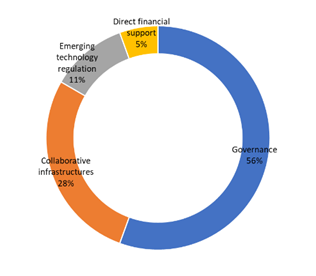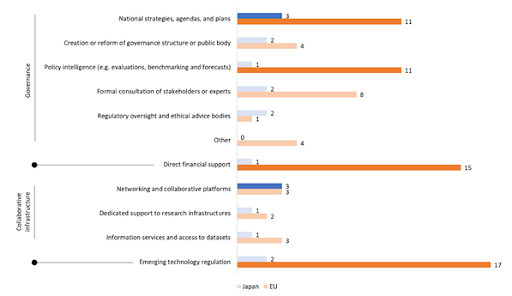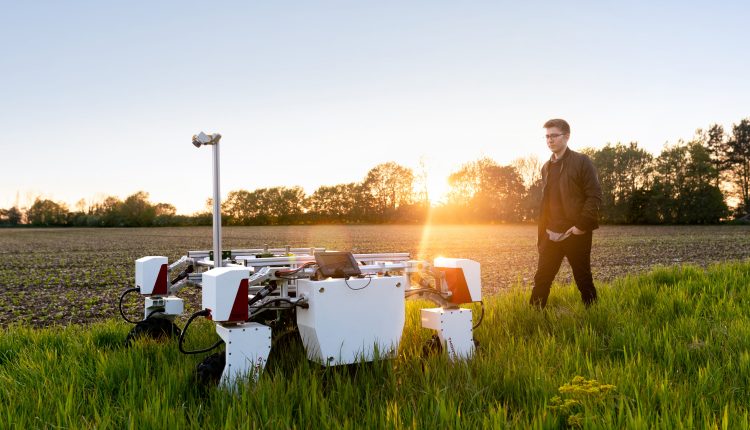Leveraging Artificial Intelligence for Sustainable Development: Applying Social Principles for Human-centric AI
Social principles on human-centric AI that have been proposed by the Government of Japan provide fundamental concepts for conditions and measures conducive to effective future utilisation of AI for sustainability.
Artificial intelligence and sustainable development
Economic, social, and environmental sustainability are the three critical areas of the Sustainable Development Goals (SDGs) adopted by UN Member States. New technologies, such as digital technology, machine learning, and artificial intelligence (AI), are widely believed to facilitate realisation of the SDGs and “Society 5.0”, a sustainable human-centric society that utilises cutting-edge technologies to enhance social value and human well-being (Korwatanasakul forthcoming).
AI strategy and policy initiatives
In 2019, Japan released the “AI Strategy 2019 — AI for Everyone: People, Industries, Regions and Governments,” which was based upon emerging concepts such as Society 5.0 and the SDGs (Prime Minister’s Office of Japan 2019). The strategy aims to identify and advocate for the environment and policy measures that maximise the use of AI technology to offer solutions to domestic and global issues. In particular, the strategy addresses the foundations for future development and utilisation of AI technology, the establishment of industrial and social implementation, and AI-related ethics. Japan realises the importance of human resources and technological development and, therefore, considers education and research and development reforms to be fundamental requirements for achieving Society 5.0. Skilled personnel who can either develop advanced AI technology or utilise AI technology in their daily lives are expected to drive Japan towards long-term sustainability.
Furthermore, the development of basic digital infrastructure and access to AI technology in the public and private sectors help individuals in the social implementation of AI technology. The strategy identifies priority areas aligned with possible domestic challenges. The areas of social implementation include (i) health, medical care, and long-term care; (ii) agriculture; (iii) national resilience; (iv) transportation infrastructure and logistics; and (v) regional revitalisation.
Even though AI technology and markets have developed rapidly and significantly during the past decade, the AI policy instruments of Japan still revolve around general discussions on cybersecurity, ethics, governance, small and medium-sized enterprises, rules and regulations, and technology development. Figure 1 shows that 56% of existing AI policy initiatives focus on governance, particularly national strategies, agendas, and plans. In contrast, policy instruments for emerging technology regulation and direct financial support account for 11% and 5%, respectively. The high proportion of policy instruments related to governance illustrates that the government is still in the early stages of planning and mapping the AI technology ecosystem.

Figure 1 – AI Policy Instruments of Japan (Source; UNU-IAS, based on OECD.AI 2021)
Figure 2 compares the current state of AI policy instruments in the EU and Japan. Overall, in sharp contrast to the EU, the number of policy instruments in Japan is still limited, underlining that the Government of Japan remains in the initial policy planning stage. Japan emphasises national strategies, agendas, and plans as well as networking and collaborative platforms. Keywords such as public–private partnerships, SDGs, and Society 5.0 repeatedly appear in Japan’s policy documents. The EU, however, places more weight on policy instruments related to emerging technology regulation and direct financial support, while balancing the development of AI governance. Similarly to Japan, the EU’s AI policy instruments are based on the principle of sustainable development and therefore tackle issues relevant to the SDGs, such as autonomous driving, climate change and green transformations, digital single market, diversity and gender, and public services. The differences in approach between the EU and Japan reflect specific prioritised areas corresponding to the challenges faced by each economy.

Figure 2 — Breakdown of AI Policy Instruments of the EU and Japan (Source; UNU-IAS, based on OECD.AI 2021).
Policy recommendations
- Adopt social principles on human-centric AI: The Cabinet Secretariat of Japan (2019) proposed seven social principles on human-centric AI to realise the SDGs and Society 5.0. These principles aim to ensure the full utilisation of data and information to develop AI technology within socially acceptable and risk-free boundaries for AI applications. In other words, under these principles policymakers should guarantee the equality, human rights, and (cyber)security of people when planning and mapping the ecosystem of the AI sector.
- Accelerate the overall development of AI policies: Even in major economies, policymakers struggle to keep pace with rapidly evolving AI technology (Hatani 2020; OECD 2017). Thus, an agile public sector is crucial in an era of new technological breakthroughs and disruptions. A government that acquires attributes of agile organisations has the potential to adapt to the changing dynamics of AI technology and, in turn, effectively and efficiently accelerate the overall development of AI policies.
- Adjust AI strategy and policy initiatives to meet local needs: While policymakers must incorporate a global perspective when dealing with AI strategy and policy initiatives, it is also essential to tailor such measures to address domestic issues. Policymakers should nationalise and localise their AI strategy in alignment with domestic challenges and priorities.
Author: Upalat Korwatanasakul and Akio Takemoto
United Nations University Institute for the Advanced Study of Sustainability
Disclaimer
The views expressed in this publication are those of the authors and do not necessarily reflect the views of the United Nations University.
Organisation:
Centre for Business Information Ethics Meiji university, Tokyo, Japan
References
[1] Cabinet Secretariat, Japan. 2019. Social Principles of Human-Centric AI. Tokyo. https://www.cas.go.jp/jp/seisaku/jinkouchinou/pdf/humancentricai.pdf
[2] Hatani, F. 2020. “Artificial Intelligence in Japan: Policy, Prospects, and Obstacles in the Automotive Industry.” Transforming Japanese Business: Rising to the Digital Challenge, edited by Anshuman Khare, Hiroki Ishikura, and William W. Baber, Springer, pp. 211–226.
[3] Korwatanasakul, U. forthcoming. Japan aims for an “AI-Ready Society” through seven social principles of human-centric AI. EUJ.AI. https://project.eu-japan.ai/
[4] Organisation for Economic Co-operation and Development (OECD). 2017. OECD digital economy outlook 2017. Paris. https://doi.org/10.1787/9789264276284-en
[5] OECD.AI. 2021. Database of National AI Policies. Paris. https://www.oecd.ai
[6] Prime Minister’s Office of Japan. 2019. AI Strategy 2019 — AI for Everyone: People, Industries, Regions and Governments. Tokyo. https://www.kantei.go.jp/jp/singi/ai_senryaku/pdf/aistratagy2019en.pdf

